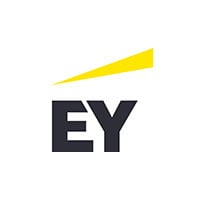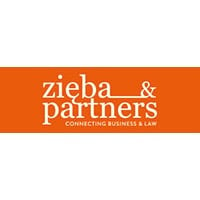

Legal and corporate affairs director | AB InBev Efes Ukraine




Denys Khrenov
Legal and corporate affairs director | AB InBev Efes Ukraine
The most important project of the previous two years was legal support of the deal between AB InBev and Anadolu Efes on the merger of existing Russia and Ukraine businesses. Me and my team were in charge of the preparation and implementation of Ukrainian part of the project. The project included legal support of preparation of the initial non-binding agreement, obtaining regulatory approval, planning the integration of existing businesses, preparation of final binding agreements, closing the deal, creation of Joint Venture company in Ukraine. Reorganisation of the Ukrainian legal entity included renaming, change of type of joint stock company, shares buy-out, renewal of all permit documents with no interruption of business processes as well as legal support of launch of Efes brand portfolio. The Ukrainian part of the project lasted from quarter two of 2017 until quarter three of 2019 and was completed successfully.
The work of the legal department was changed in a way to provide a designated legal partner for functions. Long-term cooperation of the legal partner with internal clients leads to deep understanding of client function processes, background and business priorities. This helps to ensure faster and more effortless (for the client) support, better quality of proposed advice. We strive to minimise unneeded bureaucracy and make processes simple, transparent and convenient.
Litigation work was significantly decreased by means of proactive management of disputes and efficient negotiation, as well as timely and balanced reaction to claims. This allows the team to stay focused at the most important issues.
For me diversity is natural and I have no tolerance to any kind of discrimination. AB InBev Efes has strong and up-to-date internal policies in place. We educate our people by means of formal trainings and smaller group workshops, regular surveys. We have a multichannel whistleblowing system that allows employees to report any cases of these policies violation. But what is most important to my belief, is that we create both in the team and in wider organisation a culture, that promotes and explains diversity. The environment itself is the strongest driver for people’s behaviour.
Don’t simply answer the internal client’s questions. The key is to understand precisely the underlying need of the client, align on this understanding and give a timely solution that totally satisfies this need. It will require more effort at start, but will help not only to build a cooperation with better effort/result ratio but also to deliver better results for the business.
One big advantage of being an in-house lawyer is an opportunity to understand the background of legal issue in huge detail, which is only available for internal circle, and craft a solution 100% informed and relevant for the business.
FOCUS ON… UNLOCKING OPPORTUNITIES
We are here to unlock opportunities.
There is no doubt that corporate counsel must ensure legal basics in their company. All legal processes should work well and seamlessly, be simple and well understood and cover all areas of business. All relevant risks should be mapped, prevention actions set up and constantly updated. It gives your business the license to operate. But this is only a starting point, a basement of a legal function.
What makes it successful and adds value in eyes of core business functions, is being a part of business front line. Corporate counsel should always find themselves on the cutting edge of company’s growth and innovation and contribute to the ultimate business result. Today everything happens at a terrific speed. Being slow with decisions or not having proper solutions in time mostly means missing opportunity. Being too aggressive and acting on poorly informed decisions is another way to fail. Thus, a legal function’s main challenge is to know which door business it heading to, make sure this door is a right one and open it in advance. This part becomes tricky.
In the first place most innovation and growth often happens in areas where regulatory framework is either absent, insufficient or ambiguous. The risk of making mistakes is much higher than in well-established areas of business, therefore this risk mapping and evaluation should be a part of decision-making process so that all participants were equally well informed. The risk of regulatory framework shift here is also higher, so not only it requires ability to understand the vector of regulatory framework development, but also ability to shape it in close cooperation with business community, regulatory bodies and non-governmental organisations. And all of this should ensure 100% proof compliance with applicable law.
Second, a deeper involvement into business operations and planning requires a deeper knowledge of the respective processes and underlying background – financial, technical etc. Fortunately, colleagues from other departments are mostly happy to share details and specifics of their work and are open for questions. Moreover, as you learn their domain better, you get even more interesting conversations and insights. There’s another very pleasant thing about this. At the point when you get some authority and your awareness is acknowledged by experts, you immediately get more power to bring in your own functional advice and expertise. Knowing the problems and dilemmas of other sides of the business, you’ll be able to look at the arising issues from multiple perspectives and propose better options.
Third, being armed with the knowledge, you need to become an integral part of all the decision making process. In different companies decisions are prepared and made in different places and circumstances. It is important to locate and understand all these setups and integrate yourself into discussion. Your participation and input will be always welcome and valued if it becomes part of the solution.
Therefore the cornerstones of legal function for me are:
Absolute integrity at all times.
Profound functional and business knowledge enabling best solutions.
Efficient two-way communication with all functions.
Having a seat at the table where strategic decisions are discussed and made.